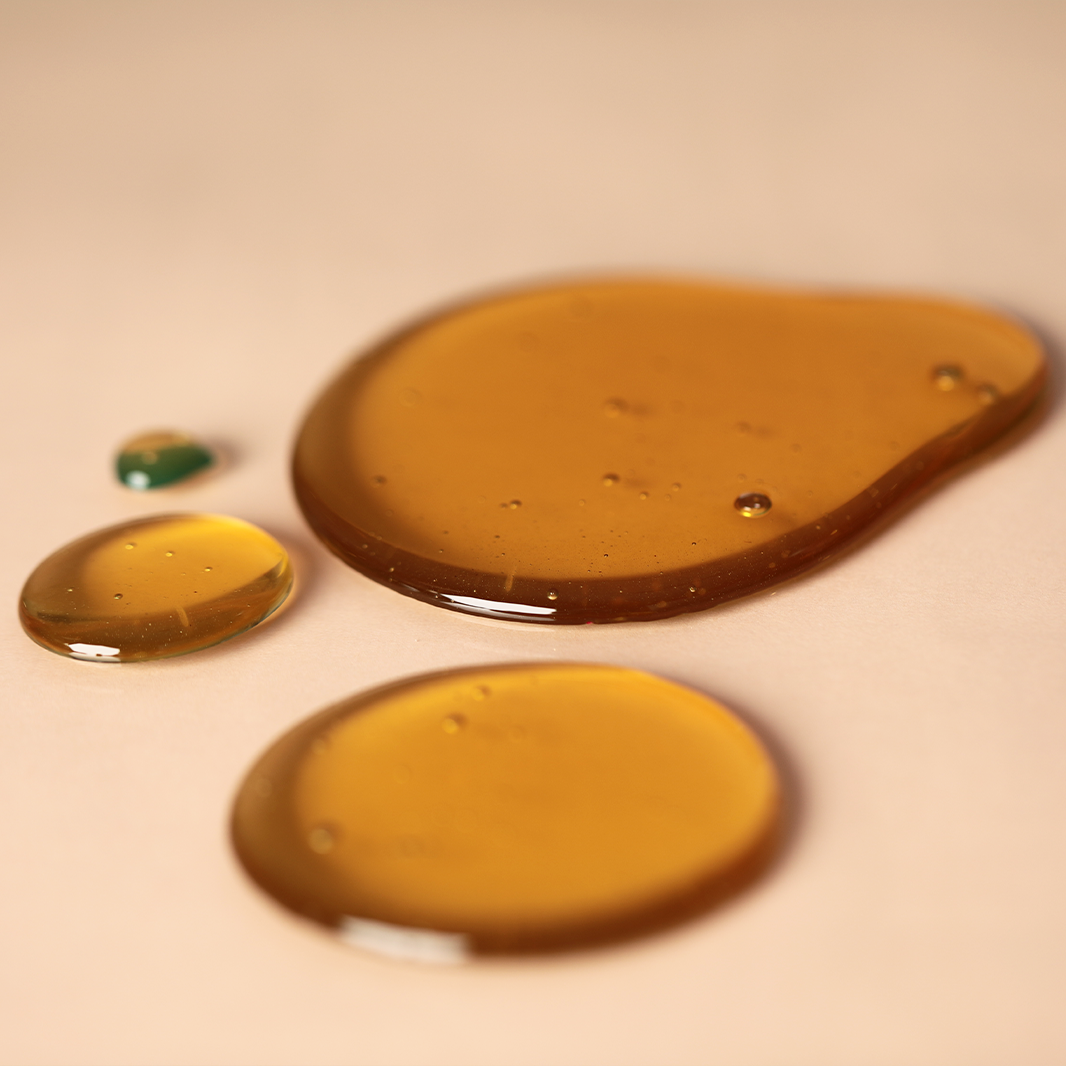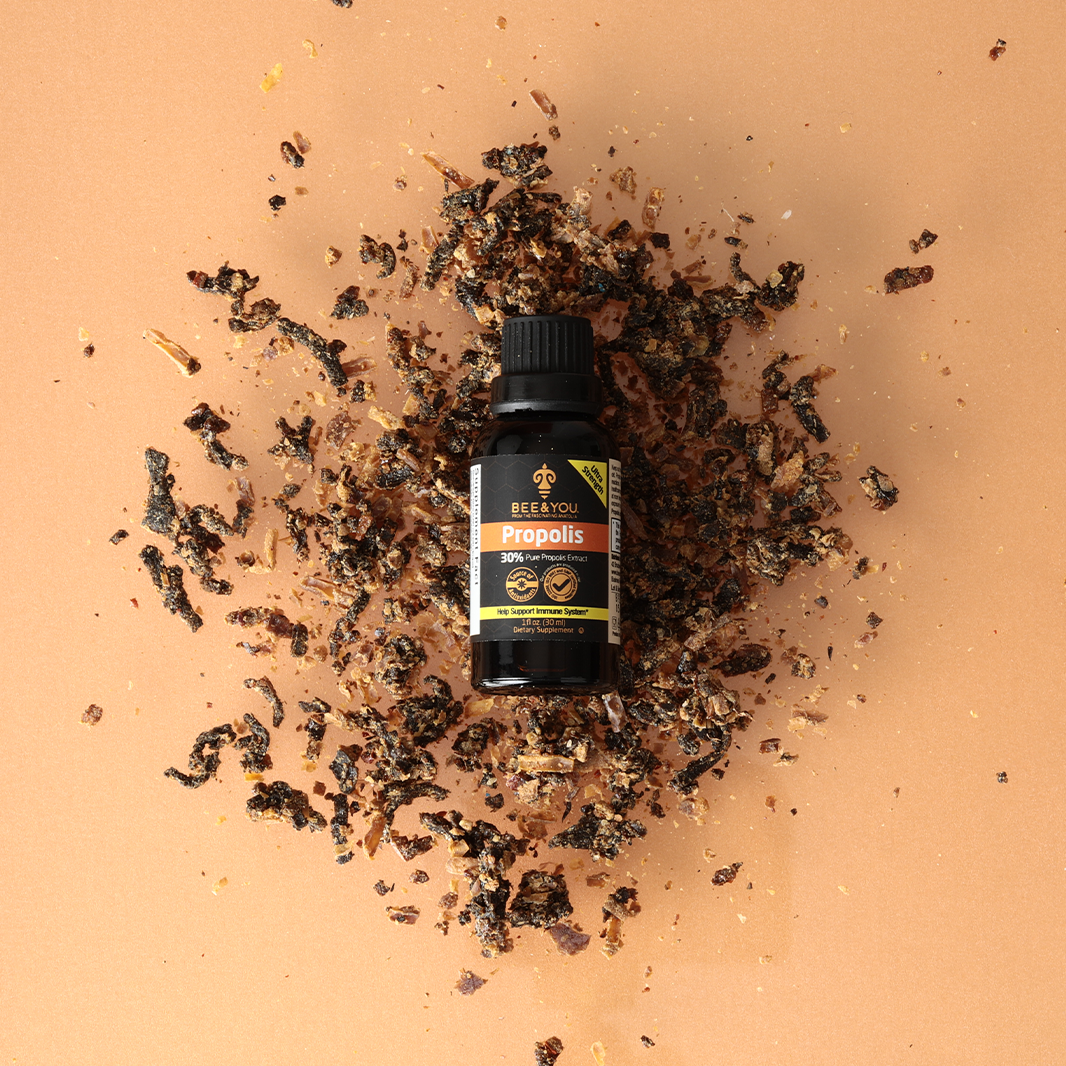Propolis is a resin-like bee product that the bees collect from the leaves, stems, and buds of plants. Its main function is to provide and maintain an antiseptic environment in the hive. Honeybees use propolis to protect their larvae and themselves against microorganisms (viruses, bacteria, and fungus) and they use it as a source of disinfectant in the hive. It has a high antioxidant capacity due to its rich content of flavonoids and phenolic compounds.
Research conducted in New Zealand in 2015 investigated the benefits of propolis on gastrointestinal health and demonstrated that the phenolic compounds of propolis (pinocembrin, pinobanksin-3-O-acetate, tectochrysin, dimethylallyl caffeate, 3-methyl-3-butenyl caffeate, benzyl ferulate and benzyl isoferulate) have anti-proliferative effects, meaning they inhibit cell growth on cancer cell lines (HCT-116 colon cancer, KYSE-30 oesophageal squamous cancer, and NCI-N87 gastric carcinoma).
Reference
Catchpole, O., Mitchell, K., Bloor, S., Davis, P. ve Suddes, A. 2015.Antiproliferative activity of New Zealand propolis and phenolic compounds vs human colorectal adenocarcinoma cells Fitoterapia 106: 167-174.






